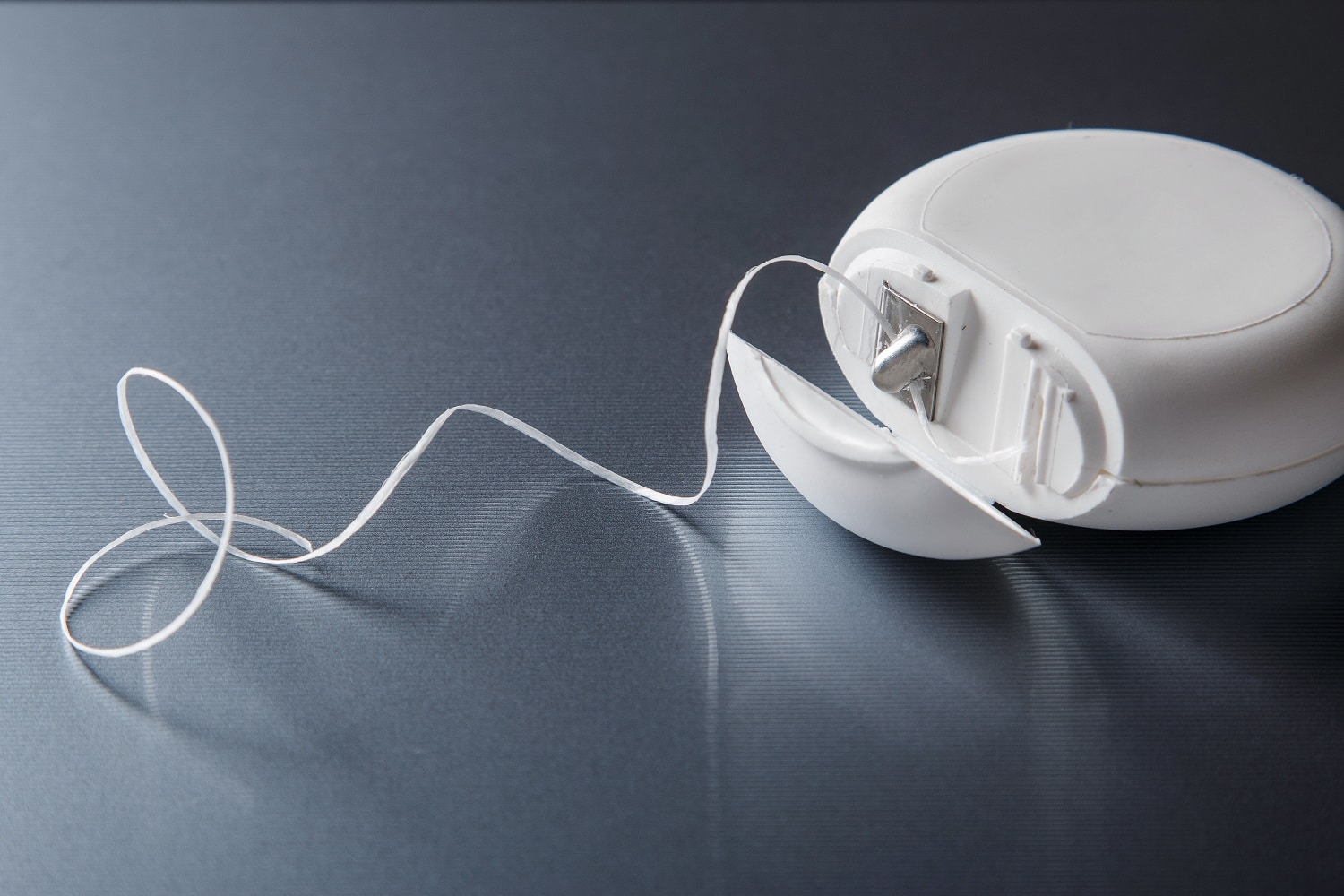Along with brushing your teeth, flossing your teeth is one of the most important oral hygiene habits necessary for healthy, comfortable teeth and gums. Despite that, few people floss every day as they should–many people simply “spot floss” when some bit of food is irritating them or they have eaten something that tends to leave a bunch of debris behind, like raw nuts or blueberries. Still others skip flossing altogether, which means the only time their teeth benefit from this important procedure is at their dental visit. Unfortunately, this is just not enough.
Why Flossing is So Important
You may understand the basics of why brushing your teeth is so important–it helps to remove leftover food particles and harmful oral bacteria so that these things do not build up and contribute to tooth decay and gum disease. This also happens to be why flossing your teeth is so important–it finishes the job that brushing begins. In fact, even if you brush your teeth perfectly every single day, you are never going to achieve the full, desired results unless you also floss them. Toothbrush bristles are simply too large to penetrate the spaces between teeth, where floss can go, and they cannot gently clean along the gum line as effectively as floss.
If you take a look at your teeth after you’ve brushed them thoroughly, you will likely notice the small amount of debris that has been left behind between teeth. This is where flossing comes in–consider it the final “quality check” when cleaning your teeth. By flossing every day, you can help to protect your mouth against gum disease, freshen your breath and give your teeth that final clean that makes them look and feel as good as possible.
Overcoming Excuses
Even if you fully understand the importance of regularly flossing your teeth, you may still find yourself making excuses for why you cannot floss your teeth. Following are some of the most common excuses for failing to floss your teeth, and their responses:
- I don’t know how to floss. If you don’t know how to floss efficiently and effectively, it makes sense that you would then avoid this important oral hygiene habit. However, with a little direction and practice you can achieve great results. Start with these basics: pull out roughly fifteen to eighteen inches of floss and wrap the ends around the middle fingers of both hands until you have about an inch and a half of floss between them. Grabbing the floss firmly with your forefingers and thumbs, gently guide it down between two teeth to the gum line, then curve it into a C shape first along the gum line of one tooth and then the other. Pull the floss back up and shift it to a clean section before repeating the procedure with the next set of teeth. Continue in this way through all the teeth in your mouth.
- I’ll just use my fingernail–or a toothpick–to get stuck food out of my teeth. While flossing does help to remove food that is stuck between teeth, this is not its only function and no other method of food removal will do everything flossing can do. Harmful oral bacteria and plaque cannot be removed with fingernails or toothpicks, but it can be removed with proper flossing techniques.
- It hurts, and it makes my gums bleed. If flossing your teeth hurts and makes your gums bleed, there are two possible causes: you are doing it incorrectly and too aggressively, or you have an oral health issue like gum inflammation or even the early stages of gum disease. In either case, checking in with your dentist is a wise idea. If you are flossing incorrectly and aggressively, she will be able to help you straighten out your technique. If you have an oral health issue, she can help you to address and resolve it. It is important to note that if an oral health issue is causing your gums to bleed when you floss, the solution is to participate in more oral hygiene habits, not less–if you continue to brush and floss every day you may very well notice that it begins to feel more comfortable and your gums stop bleeding because they are getting the cleaning they need.
- My teeth are too close together to be flossed. With the exception of teeth connected by dental bridges, all teeth can be flossed, no matter how close together they are. Try using a different type of floss, or a waxed floss, to help, or ask your dentist for her suggestions on how best to get floss in between your teeth.
The bottom line is that flossing your teeth every day is an absolutely essential component to thoroughly cleaning your teeth. If you need help mastering flossing or have any questions about flossing, ask Dr. Saferin how you can improve your technique. She will be happy to help you take one step further in improving your oral health.


